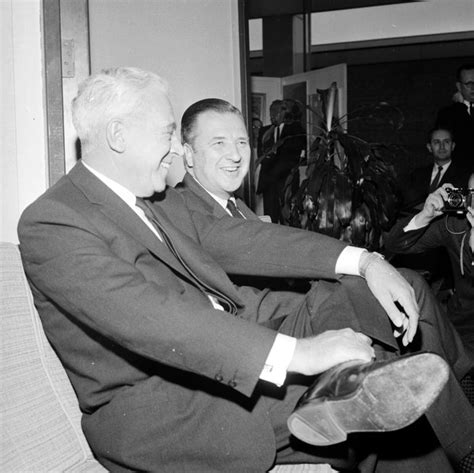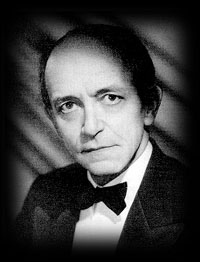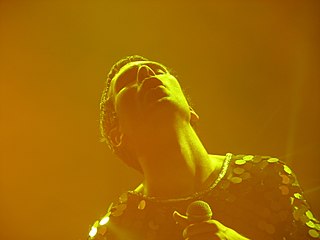Цитата Мюриэль Рукейзер
«Идея» для стихотворения, которая может прийти как образ, брошенный в память, как звук слов, который запускает путешествие звука и значения, как кривая эмоции (форма), построенная определенными кризисами событий или образа. или звук, или как название, которое вызывает чувство внутренних отношений; это первое «всплытие» стихотворения. Затем может наступить период затишья.
Связанные цитаты
С писателями, которые не работают, редко случаются счастливые случаи. Вы обнаружите, что можете переписывать и переписывать стихотворение, но оно никогда не кажется совершенно правильным. Затем довольно быстро может появиться гораздо лучшее стихотворение, и вы удивляетесь, почему вы возились со всей этой работой над более ранним стихотворением. На самом деле, тяжелая работа, которую вы проделываете над одним стихотворением, вложена во все остальные стихотворения. Тяжелая работа над первым стихотворением стала причиной внезапной легкости второго. Если вы будете просто сидеть и ждать легких, ничего не выйдет. Принимайтесь за работу.
Становится очевидным, что когда Жизненная сила пробуждает свою таинственную активность в начале цикла проявления, те вибрации, которые мы признаем звуком, возникают раньше более быстрых пульсаций электричества и света. Таким образом, современная наука подтверждает древнее оккультное учение о том, что звук является корнем физического существования. «Из Звука возникает каждая форма, и именно в Звуке живет каждая форма.
Подумайте о звуке, который вы издаете, когда отпускаете дыхание после очень, очень долгой задержки дыхания. Подумайте о самом радостном звуке, который вы знаете: звук рассвета в первый день весенних каникул, звук открываемой бутылки кока-колы, звук толпы, ликующей в ваших ушах, потому что вы подходите к последней части весеннего перерыва. гонка - и ты впереди. Подумайте о шуме воды по камням в холодном ручье и шуме ветра в зеленых деревьях поздним майским днем в Центральном парке. Подумайте о звуке подъезжающего к станции автобуса с любимым человеком. Затем соедините все это вместе.
Меня всегда интересовали способы озвучивания стихотворения, особенно стихотворения с длинными строками. Пробелы в строке, двойные двоеточия, косые черты указывают на паузу, дыхание, безотлагательность, они не метрически точны, как в нотной записи, но они служат (я надеюсь) для того, чтобы заставить читателя задуматься о звучании стихотворения - точно так же, как дорожные знаки во время вождения заставляют нас почти бессознательно осознавать крутой холм, перекресток, обледенелый мост и т. д.
Тема стихотворения обычно диктует ритм или рифму и ее форму. Иногда, когда вы заканчиваете стихотворение и думаете, что стихотворение закончено, стихотворение говорит: «Вы еще не закончили со мной», и вам приходится возвращаться и пересматривать, и у вас может получиться совсем другое стихотворение. У него есть своя собственная жизнь.
Однажды, изучая стихотворение Йейтса, я решил всю оставшуюся жизнь писать стихи. Я понял, что в одном коротком стихотворении есть место для истории, музыки, психологии, религиозной мысли, настроения, оккультных размышлений, характера и событий собственной жизни. Я до сих пор удивляюсь, что такие разные субстанции могут найти пристанище и питание в стихотворении. На самом деле стихотворение может быть чем-то вроде питательной жидкости, вроде той, которую используют для поддержания жизни амебы. Если стихотворение подготовлено правильно, оно может годами сохранять живой образ, мысль, понимание истории или души, а также наши желания и воздушные порывы.
Есть разница между письмом, письменным словом и музыкой. Когда у вас есть чистая страница, она не издает ни звука, как это происходит со мной каждую ночь, когда я играю. Есть этот сумасшедший момент: первая отметка, которую вы делаете на странице. Но звук может вдохновить звук, как слова не могут вдохновить слова — по крайней мере, для меня. Сама природа звука до сих пор остается для меня огромной загадкой. Я очень рада этому.
Я пишу, потому что написать новую фразу, не говоря уже о новом стихотворении, значит переступить порог одновременно и большего существования, и глубокой тайны. А мысли не было, значит она есть. Образа, истории, представления о том, что значит быть человеком, не было, значит, есть. С каждым новым стихотворением пробуждается новое для сердца, для мира чувство.
Мне нужна геометрия, чтобы задать грамматику выразительного языка изображения. Структурный скелет, композиция и геометрическое расположение обеспечивают перспективу, с которой можно читать изображение; в противном случае мы поступили бы так, как поступали дадаисты, складывая слова в мешочек, а затем доставая их наугад, чтобы составить стихотворение.
Когда мы сидим в медитации и слышим звук, мы думаем: «О, этот звук меня беспокоит». Если мы видим это таким, мы страдаем. Но если мы исследуем немного глубже, мы увидим, что звук — это просто звук. Если мы так понимаем, то больше ничего. Оставляем так. Звук — это просто звук, зачем вам идти и хватать его? Вы видите, что на самом деле это вы вышли и потревожили звук.
Изложение идей в стихотворении может иметь отношение к логике. Более глубоко его можно отождествить с эмоциональным развитием стихотворения с точки зрения музыки и образов, так что стихотворение живет повсюду. Другое, более фундаментальное утверждение в поэзии делается через сами образы, те заявления, пробуждающие воспоминания, точные и музыкальные, которые движутся во времени и являются действиями стихотворения.





































